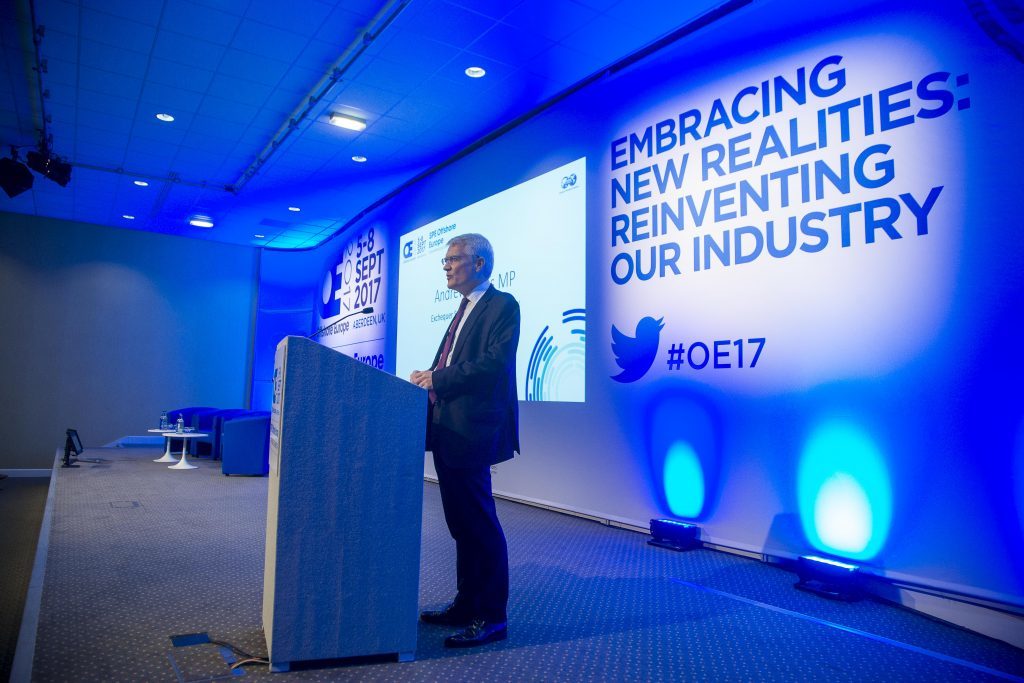
The exchequer secretary to the UK Treasury said yesterday that the North Sea oil industry had set a great example for other sectors to follow.
Andrew Jones said the oil industry had made stunning progress in an efficiency drive which has halved lifting costs since 2014.
Many experts have said the oil and gas sector needed to learn from other industries, such as automotive and aviation, if it wants to have a bright future.
Speaking at Offshore Europe 2017, Mr Jones said improving productivity was one of the biggest challenges on his desk, and that the North Sea could teach others a lesson.
“We’ve been pleased to see the industry itself responding so effectively to difficult conditions,” he said.
“The progress you’ve achieved in terms of improving efficiency and competitiveness has been impressive as we’ve seen operating costs come tumbling down in this time.
“Over the last couple of years, the average cost for a barrel has almost halved – from around $30 to $15.
“Those are productivity gains I’d like to see all our industries making in Britain.”
Mr Jones told the audience at the plenary session of Offshore Europe that the UK Government was “firmly committed” to supporting the oil and gas industry.
Mr Jones said Westminster had provided more than £2billion worth of support for the sector in recent years, boosted by one of the most competitive tax environments in the world.
Mr Jones also said he was encouraged by signs of growing confidence in the industry, created by an influx of investment in the first half of 2017.
But he warned there was no “room for complacency” in industry or government and said his colleagues understood the importance of a stable and predictable tax regime.
“The principles we set out for the UK’s oil and gas fiscal regime – in our paper Driving Investment – they are principles that remain firmly in place,” he said.
“Because we fully understand the importance of certainty and predictability in the taxes you pay. You can expect a competitive and stable environment in which to plan your investments.”
He said the government was investigating ways of making the tax system better to encourage investment in late-life assets.
In the Spring Budget, Chancellor Philip Hammond said an expert panel would be assembled to consider reforming decommissioning tax relief to smooth the transfer of mature fields and infrastructure.
Yesterday, Mr Jones revealed that the panel had met four times over summer and confirmed that its findings would be reported in the Autumn Budget.
He also said North Sea companies had all the ingredients needed to become global experts in decommissioning and create thousands of job opportunities.
“Right now we have a huge window of opportunity to become pioneers in decommissioning,” he said.
“We were the first to try new technologies and methods to overcome the inhospitable waters of the North Sea, so many decades ago.
“Now, as the North Sea becomes the first major production basin in the world to reach maturity and start large scale decommissioning, we have the chance to once again make ourselves the go-to global experts.
“That means thousands of highly-skilled job opportunities, it means export opportunities, and it means British businesses taking their place in a worldwide, world-class supply chain.
“The North Sea decommissioning industry is already worth £2 billion a year – I hope we’ll start to see that grow rapidly and I know that ideas about how we do that and make our mark on the global stage will be a big part of this conference.”
Recommended for you

